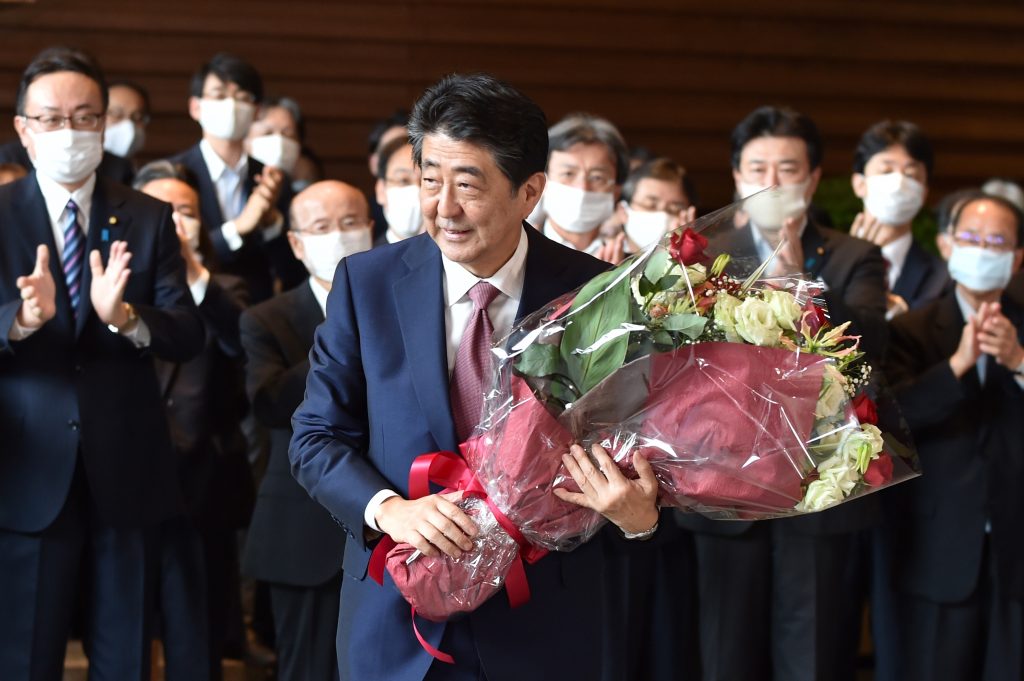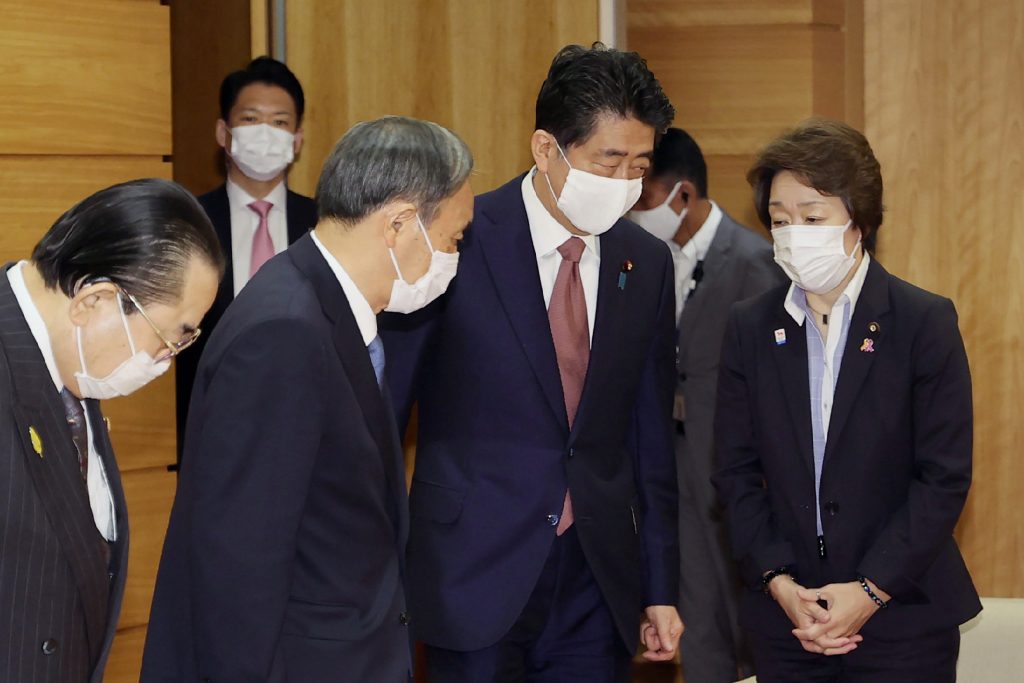



TOKYO: Japanese Prime Minister Shinzo Abe’s cabinet resigned en masse on Wednesday morning, ending Abe’s second administration on his 2,822nd day in office, longest in the history of Japan’s constitutional politics.
Including his one-year first administration that ended in September 2007, Abe’s total number of days in office added up to 3,188 days, also longest on record.
In late August, Abe announced his intention to resign, citing his chronic disease.
An extraordinary session of the Diet, Japan’s parliament, will be convened later on Wednesday and plenary meetings of the Diet’s two chambers will be held for electing the next prime minister. The voting will take place in the afternoon.
Yoshihide Suga, who was elected leader of the ruling Liberal Democratic Party on Monday, is almost certain to become the next prime minister because the party holds a comfortable majority in the House of Representatives, the all-important lower chamber of the Diet.
In September 2006, Abe became Japan’s youngest prime minister in the country’s postwar history at the age 52. But his first tenure ended in a year after his ruling LDP suffered a crushing defeat in an election of the House of Councillors, the upper Diet chamber, and symptoms of his ulcerative colitis worsened.
After returning to the top government post in December 2012, Abe focused on revitalizing the country’s economy with his reflationary policy mix, dubbed Abenomics, and maintained firm public support.
The Abe government enacted national security legislation that made it legal for Japan to exercise the right to collective self-defense, or coming to the aid of an ally under attack, through a change to the interpretation of the pacifist Constitution.
Having developed a cozy relationship with US President Donald Trump, Abe also worked to strengthen the Japan-US alliance.
On the other hand, Abe fell short of resolving the issue of abductions of Japanese nationals by North Korea decades ago and the territorial row over four Russian-held northwestern Pacific islands. He also failed to achieve his long-cherished goal of revising the Constitution.
Abe made successful effort to create a more powerful “Kantei,” or prime minister’s office, launching the National Security Council and the Cabinet Bureau of Personnel Affairs.
Meanwhile, his longtime rule also left unfavorable legacy, as highlighted by a series of favoritism scandals that took place after many bureaucrats acted on what they speculated were the wishes of Abe in a practice called “sontaku.”
JIJI Press